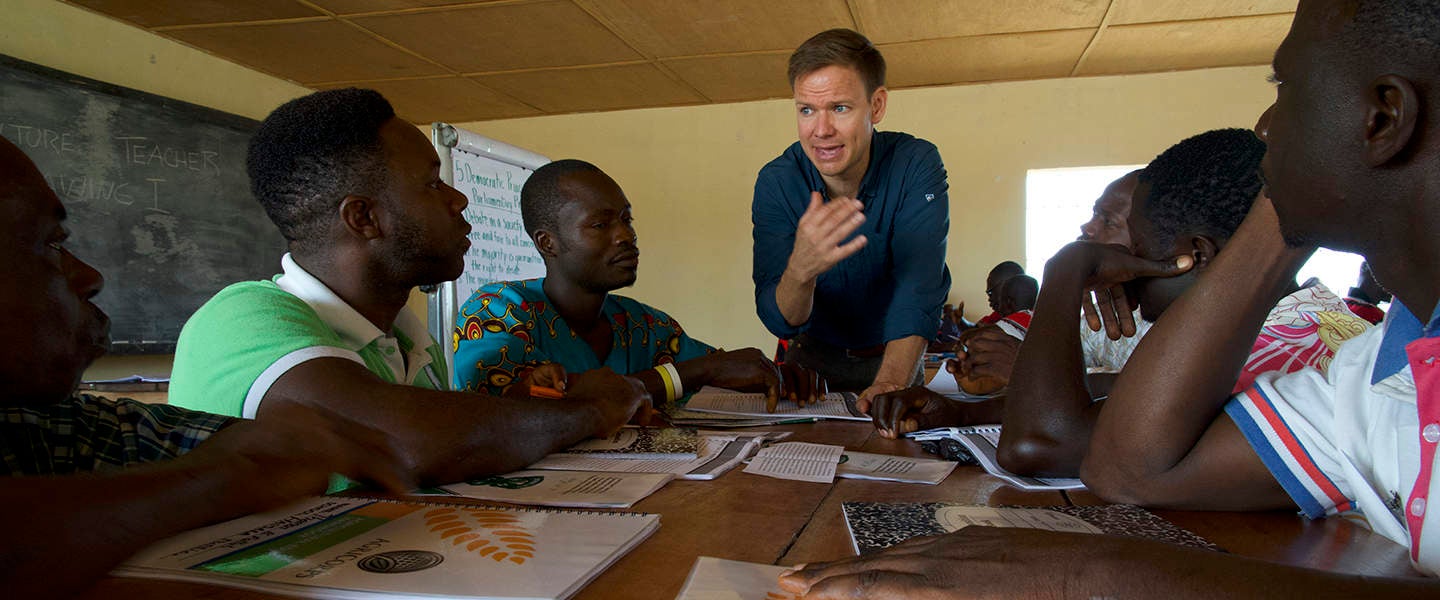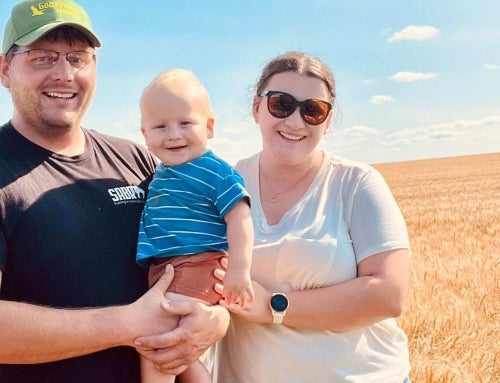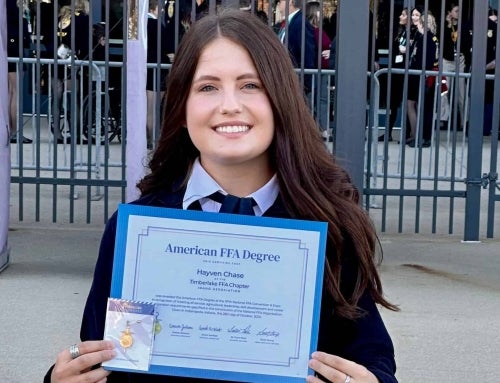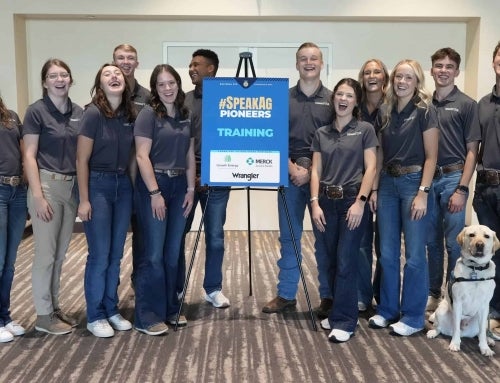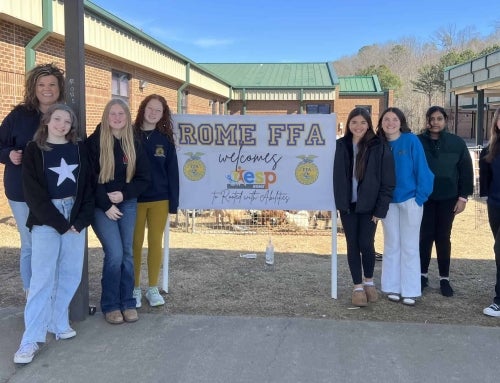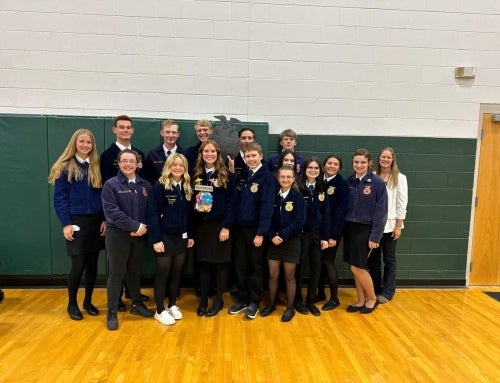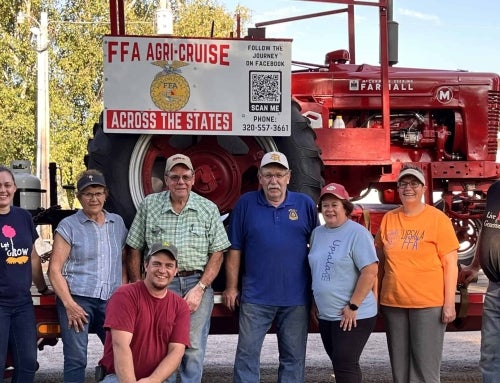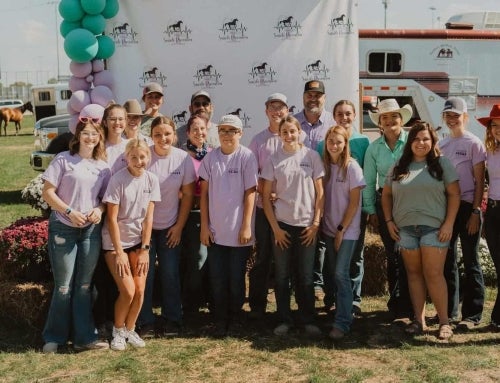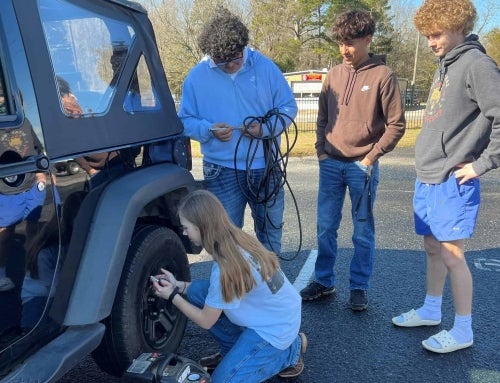In 2000, Trent McKnight was studying agricultural economics at Oklahoma State University and serving as national FFA president when he traveled to Japan with the national officer team. His first international experience proved to be life changing.
“When the national officers took their trip to Japan, we worked with the Future Farmers of Japan,” he recalls. “It was through that experience that I realized that school-based agricultural education was not just an American initiative, but a tool for economic and agricultural development around the world.”
Traveling to Japan made McKnight, who grew up on a cattle ranch in Throckmorton, Texas, eager for more international experience. He earned a graduate degree from the London School of Economics, then embarked on a series of overseas projects. He served as an agricultural consultant to the U.S. military in Iraq and researched agricultural technology and food security in West Africa.
While interviewing farmers in Liberia and Ghana, McKnight noticed that farmers who had studied agricultural education in junior high school produced more food than their peers who lacked a formal education in agriculture.
“That single differential was enough to double the yields of these farmers in their adult lives,” he says.
In 2014, McKnight launched AgriCorps, a nonprofit organization working to build capacity for school-based agricultural education (SBAE) in developing countries. AgriCorps offers fellowships to early-career college graduates with agriculture degrees — including former FFA members. The fellows teach agriculture in junior high schools in Ghana and Liberia.
The initiative was so successful that Congress created the International Agricultural Education Fellowship Program (IAEFP) as part of the 2018 Farm Bill. The USDA Foreign Agriculture Service now administers the fellowship, which allowed McKnight to focus his efforts on launching The Movement for School-Based Agricultural Education. It has goals to increase research, public policy and funding for SBAE in sub-Saharan Africa.
“One of the gaps we recognized we needed to fill was evidence,” he explains.
Through AgriCorps, McKnight has partnered with leading economists from Northwestern University to launch a randomized-controlled trial of 100 treatment schools against 100 control schools in Liberia. The research will measure the impact of SBAE on both youth and adults. The study will run until 2024.
McKnight hopes the data will convince governments in sub-Saharan Africa to adopt and fund SBAE.
“Youth can have a significant impact on transforming agricultural economies across the world,” he says. “It was youth, through organizations like FFA, who transformed agriculture in America, and that’s critical because we want people to start thinking about youth as an investment with the power to transform the economy.”
Watch McKnight’s TEDx Talk about the impact of SBAE to learn more. Check out The Movement for School-Based Agricultural Education at sbae.org.

